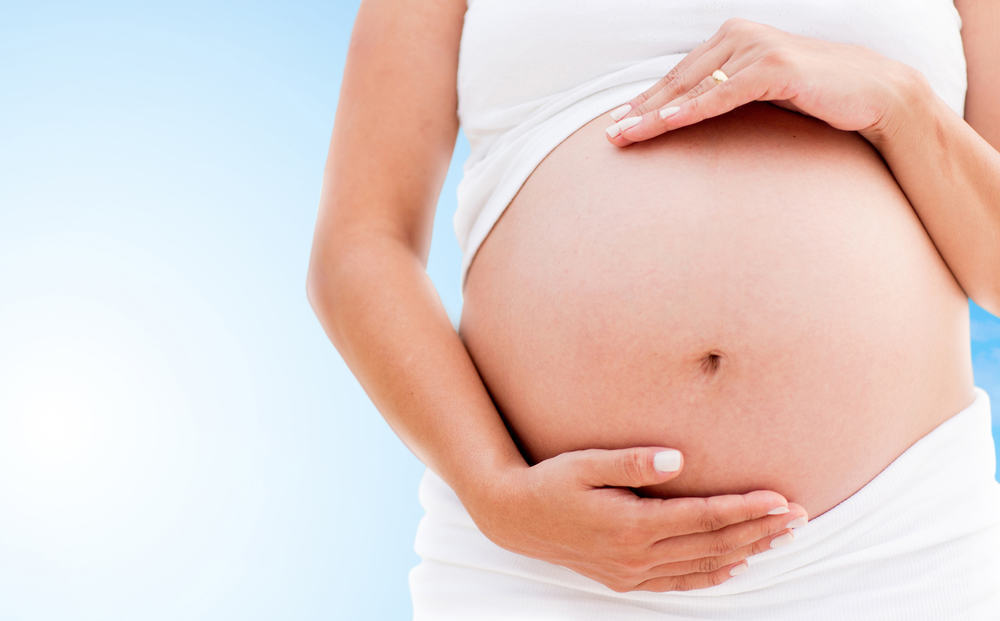Contents:
- Medical Video: Funny Comics Shows How To Fart When Sharing A Bed
- What are the causes of frequent farting babies?
- Babies swallow air
- Activity in the baby's digestive system
- The baby's digestive system is immature
- Food eaten by babies
- Problems in the baby's digestive tract
- Certain drugs
- Is it normal for babies to fart frequently?
- What should be done if there is a lot of gas in the baby's stomach?
- Check the position of suckling, is it good?
- Push the baby to belch
- Baby massage
- Check what the baby is eating
Medical Video: Funny Comics Shows How To Fart When Sharing A Bed
Does your baby often fart? Normally, babies are more often farting than adults. In fact, in a day the baby can release gas as much as 13-21 times. A very large number, right? However, the fart that is often released by babies can also be a sign of digestive problems in infants. Infants often fart caused by various things, one of which is because babies swallow air more often. In addition, there are many other causes.
What are the causes of frequent farting babies?
A lot of gas in the baby's digestive tract can cause the baby to release the gas through farting. The gas that is present in the baby's digestive tract can be obtained by babies from various things.
Some things that can be the cause of frequent farting babies are:
Babies swallow air
The air ingested by the baby is the most common cause of why there is a lot of gas in the baby's digestive tract, so the baby often farts and burps. Not only babies, adults also swallow air, this is a normal thing. It's just that babies can swallow air more often. Babies can swallow air when:
- During breastfeeding, either on the mother's breast or with a milk bottle
- When eating or drinking with a glass
- When the baby cries
- When tapping
- When swallowing saliva
READ ALSO: Baby Fart Stinks, What's Normal?
If you think that a lot of air enters the baby's body when the baby is taken outdoors in windy weather or when traveling by motorbike or car with open glass, then your assumption is wrong. This is just a myth and cannot be the reason why the baby's stomach gases and the baby often farts.
Activity in the baby's digestive system
Normally the baby's digestive tract produces gas when digesting food. When food enters the baby's body, the acid is then produced in the baby's stomach. Furthermore, the acid is neutralized by the liquid produced by the baby's digestive tract when food passes through the intestine. The result is a reaction that produces gas.
Some of the gas produced will be absorbed into the bloodstream and then discharged through the baby's breath. The rest, the gas travel will continue through the large intestine and released as a fart. If the movement of the baby's digestive tract is normal, the amount of gas produced by the baby's digestive tract is also normal.
The baby's digestive system is immature
The immature digestive system of the baby causes digestive enzymes to digest food or milk not yet available in sufficient quantities. This results in babies not being able to digest one or more proteins, carbohydrates, or fats derived from milk, juice, and some foods perfectly. As a result, the baby's digestive tract will produce more gas, so the baby will often fart to release the gas.
Food eaten by babies
New babies first introduced with solid foods will usually fart more often. The baby's digestive system may take time to switch from liquid food (milk) to solid food. So that the baby may spend more effort in digesting food at first. This makes more gas produced in the digestive tract and the baby fart more often.
Babies who have eaten solid foods can also fart more often because of the food that babies eat. Eating gas-containing foods, such as nuts or certain vegetables that contain lots of fiber and starch, causes more gas buildup in the baby's digestive tract. Then, the gas will be released through fart.
Problems in the baby's digestive tract
In breastfed infants, digestive problems such as lactose intolerance can cause excess gas in the stomach and diarrhea. Usually this happens to babies with formula milk.
In addition, babies can also experience gastroenteritis or gastroenteritis which can cause excessive gas production in the digestive tract. This can cause the baby to fart more often and the baby to experience diarrhea. Gastroenteritis can be caused by viruses, bacteria, fungi, or parasites.
READ ALSO: What's the Difference between Milk Allergies and Lactose Intolerance?
Certain drugs
Some medications can also cause the baby to fart more often. Medicines given to treat colic, reflux, constipation, fever, and infections usually have side effects such as digestive tract disorders, abdominal cramps, excessive gas production, diarrhea, or constipation.
Is it normal for babies to fart frequently?
Frequent farting babies are normal, but can also be a sign that your baby is having problems. Sometimes, too much gas in the baby's digestive tract makes it uncomfortable. How do you find out?
If after farting the baby shows a sense of happiness and not too fussy, meaning that the gas in the baby's digestive tract is still normal. Farts that are more often issued by babies are also normal in this case. However, if the opposite is true, the baby is fussy and anxious even though it has farted, maybe this could be a sign that the baby is having a problem. Digestive problems in infants are usually also characterized by frequent belching and flatulence (harder).
What should be done if there is a lot of gas in the baby's stomach?
You can do the following to relieve or prevent too much gas from entering the baby's digestive tract.
Check the position of suckling, is it good?
When feeding, either breast milk or with a bottle, the baby also swallows air. Too much air entering the baby's body certainly makes the baby feel uncomfortable. To reduce it, try to keep the baby's head higher than his stomach during feeding. You can use a pillow to support the baby's head during feeding. This makes milk enter the baby's body easily and the air bubbles that enter when suckling go up.
When breastfeeding, make sure the baby attaches well to your breast, so the baby does not swallow too much air. When using a milk bottle, you can tilt the milk bottle slightly so that the baby's mouth covers all the teats. This reduces air bubbles in the pacifier, so that little gas enters the baby's stomach.
Push the baby to belch
Sendawa is one way to get rid of gas in the baby's digestive tract, other than through farting. You can encourage the baby to belch by laying the baby on his stomach for several minutes.
READ ALSO: How to do a Baby Massage to Bring You and Your Baby closer
Baby massage
Gently massaging the baby may help him to expel gas in the digestive tract. Massage the baby around his abdomen and parts of his legs (push the baby's feet forward and backward like riding a bicycle). A warm bath can also help the baby remove excess gas in his body.
Check what the baby is eating
As discussed above, certain foods can contribute to excess gas in the baby's stomach. For that, you should avoid giving foods that contain lots of gas when the baby is uncomfortable with his stomach, such as giving too much juice, nuts, and vegetables that contain lots of gas.












